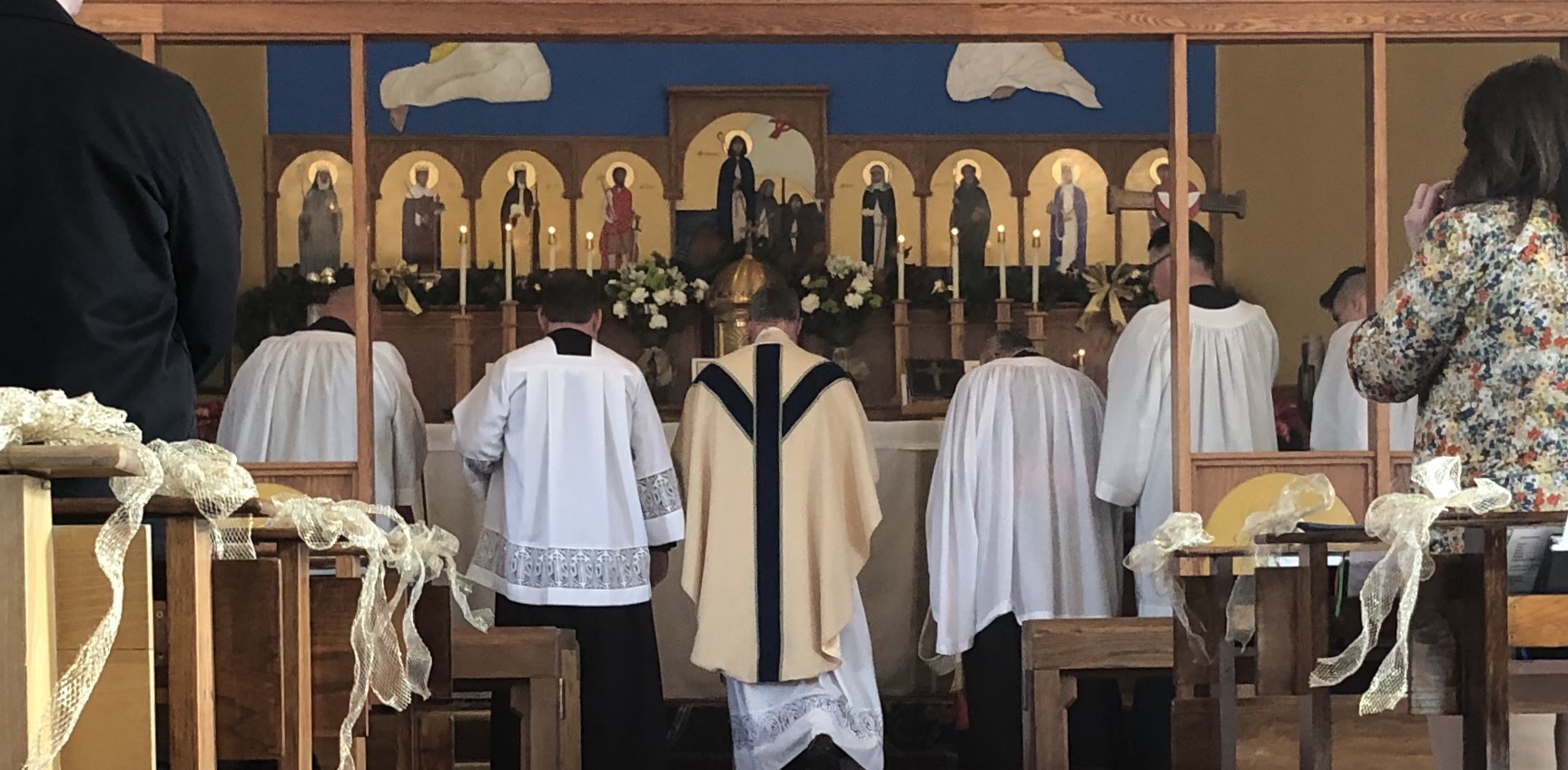Last Sunday, we entered into the season of Septuagesima. The rubrics for this pre-Lenten period allow flowers on the altar – or not. As a compromise, someone suggested we use dead flowers. And what a good idea! Not as something to actually do, but as a sermon illustration. For death is one of the great themes of this period – as Sunday’s introit shows: ‘The pains of Sheol got hold of me, the groans of death surrounded me’ (Psalm 17, 6-7, Vulgate).
But how does that introit continue? ‘In my distress, I called upon the Lord.’ The Lord who has ‘abolished death and brought life and immortality to light through the Gospel’ (2 Timothy 1, 10).
Septuagesima denotes seventy – the number years of the human life span, according to the Psalmist (Psalm 89, 10 Vulg.) – the same psalmist who speaks of our life as a fading flower (ibid., 6). But also this seventy is seventy days away from Pascha. If it betokens death, even more it betokens ‘the gift of God which is eternal life in Christ Jesus Our Lord’ (Romans 6, 23).

